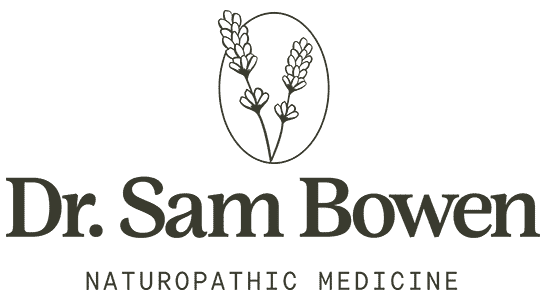Supplements

What are supplements?
Dietary supplements, or sometimes referred to as nutraceuticals, are manufactured products that contain vitamins, minerals, amino acids, enzymes, and other specific nutrients. They are often recommended as additional support alongside a healthy diet in order to achieve a certain health outcome. Dietary supplements can be formulated into capsules, tablets, powder, liquid, and fortified foods, making their use very versatile. Dietary supplements are commonly included in complementary and integrative health care plans. Working alongside a licensed health care professional can help determine the best supplements for your specific needs.
What are common supplements?
There are a wide variety of supplements on the market all focusing on different health needs. Common products that you may have seen include iron supplements, multivitamins, or prenatal vitamins. It is recommended to consult with a healthcare professional to learn more about whether a supplementation program is the right option for you.
What are the benefits of taking supplements?
Dietary supplements can be a beneficial addition to most personalized treatment plans. Including dietary supplements into an integrative health plan can help you achieve specific health goals. Some common benefits of taking supplements include:
- Correcting any nutritional deficiencies
- Supporting nutritional needs during certain phases of life (i.e. pregnancy)
- Managing certain medical disease or symptoms
- Preventing future disease
Who should be taking supplements?
Dietary supplements can used in all stages of life when deemed appropriate and necessary. Determining if dietary supplements are the right choice for you is great conversation to have with your health care professional. Based on your health history, symptoms, lab work, and diagnosis, your health care professional can make evidence informed recommendations as which supplements would the most appropriate and effective for you. In my practice, some common areas of health that often benefit from a supplementation program include:
- Preconception care and fertility
- Menstrual irregularities
- Digestive concerns and malabsorption diseases
- Stress and anxiety
- Certain nutritional diets (i.g. vegetarian or vegan diet)
- Athletic, exercise, and sport supplementation
Selecting High-Quality Supplements
Unfortunately, there are limitations with how supplements are regulated, which raises concerns about the overall quality, effectiveness, and safety of many supplements sold to the general public. With various manufacturers and products on the market, it can be difficult to know which companies are creating the highest quality products. Fortunately, there are many professional-grade companies that implement quality assurance measures that go beyond the basic requirements. These professional-grade supplement companies strive to ensure the purest product formulation so that there is no discrepancy between what is stated on the product label vs what actually is actually in the product. I only recommend professional-grade supplements that guarantee a safe and therapeutic effect and that have had their quality assessed and verified. If you are interested in learning more about how supplements are regulated, Health Canada provides information and resources.
1008 Homer St, Unit #318,
Vancouver, BC, V6B 2X1


